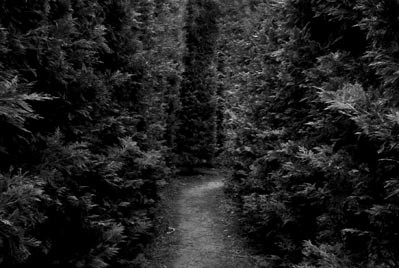Dennis Del Favero
17 Apr - 30 May 2009
DENNIS DEL FAVERO
“Magnesium Light”
Opening: Friday, 17 April 2009
7 p.m.: Artist Talk (in English)
With Prof. Dr. Ursula Frohne & Christian Katti
Australian artist Dennis Del Favero (*1953) utilises different media to evoke the way in which the past is never dead and is not past. He does this by exploring how memories, like ›pentimenti‹, endure beyond attempts to erase them and how they constitute the foundation for our relationship with the world around us and its relationship with us. ›Pentimenti‹, a term used in art conservation, refers to the visible trace of an earlier painting beneath a layer of paint on a canvas typically found during restoration or x-ray. In the work for the exhibition »magnesium light« he focuses on how one might live in a world increasingly haunted by its past, and how this haunting could provide an opportunity to re-evaluate many of the assumptions we cherish. The ambiguity of each of the scenarios implicate the viewers, challenging their ideas about what they are witnessing.
»Todtnauberg« deals with the ›epoch making encounter‹ between the German philosopher Martin Heidegger and the Jewish poet Paul Celan at Todtnauberg in 1967. While a number of literary and philosophical interpretations of this encounter have focused on Celan's disappointment, this project concerns itself with the amnesia that enveloped the encounter and the events surrounding it. On the one hand is Heidegger's silence regarding his collaboration with the Nazis and the extermination of the Jews. On the other is Celan's attempt to remember the dead overlaid with the guilt he feels towards his parents, who died in the camps. Celan looks back at the meeting and the holocaust it evokes or the basis for a new way of living that embraces the unimaginable.
In »You and I« and »Hold Me« viewers enter a darkened space showing images tracking a male and female figure during love-making. In »You and I« viewers watch the encounter from the perspective of the anonymous woman, writhing in pleasure as she straddles the man’s body with an assured and independent sexual power. The voice-over, with its American accent, subtly complicates this by suggesting a female American soldier based somewhere in the Middle East. In »Hold Me« the man recollects in fragments the last moments with his wife as he struggles to make sense of his sexual encounter with this woman.
The photographic series »Affinity« explores the inter-relationship between male and female sexuality, using images evoking how the male and female are inextricably linked in their definition of each other. Deploying Antonio Canova’s »Cupid and Psyche« of 1793, the body here acts as a screen for our earliest infantile recollections, where our own bodies were always enveloped and touched by the bodies of those around us, particularly that of our mother. These recollections inform the intimacy we now witness in »Affinity« as one body attempts to make contact with another.
“Magnesium Light”
Opening: Friday, 17 April 2009
7 p.m.: Artist Talk (in English)
With Prof. Dr. Ursula Frohne & Christian Katti
Australian artist Dennis Del Favero (*1953) utilises different media to evoke the way in which the past is never dead and is not past. He does this by exploring how memories, like ›pentimenti‹, endure beyond attempts to erase them and how they constitute the foundation for our relationship with the world around us and its relationship with us. ›Pentimenti‹, a term used in art conservation, refers to the visible trace of an earlier painting beneath a layer of paint on a canvas typically found during restoration or x-ray. In the work for the exhibition »magnesium light« he focuses on how one might live in a world increasingly haunted by its past, and how this haunting could provide an opportunity to re-evaluate many of the assumptions we cherish. The ambiguity of each of the scenarios implicate the viewers, challenging their ideas about what they are witnessing.
»Todtnauberg« deals with the ›epoch making encounter‹ between the German philosopher Martin Heidegger and the Jewish poet Paul Celan at Todtnauberg in 1967. While a number of literary and philosophical interpretations of this encounter have focused on Celan's disappointment, this project concerns itself with the amnesia that enveloped the encounter and the events surrounding it. On the one hand is Heidegger's silence regarding his collaboration with the Nazis and the extermination of the Jews. On the other is Celan's attempt to remember the dead overlaid with the guilt he feels towards his parents, who died in the camps. Celan looks back at the meeting and the holocaust it evokes or the basis for a new way of living that embraces the unimaginable.
In »You and I« and »Hold Me« viewers enter a darkened space showing images tracking a male and female figure during love-making. In »You and I« viewers watch the encounter from the perspective of the anonymous woman, writhing in pleasure as she straddles the man’s body with an assured and independent sexual power. The voice-over, with its American accent, subtly complicates this by suggesting a female American soldier based somewhere in the Middle East. In »Hold Me« the man recollects in fragments the last moments with his wife as he struggles to make sense of his sexual encounter with this woman.
The photographic series »Affinity« explores the inter-relationship between male and female sexuality, using images evoking how the male and female are inextricably linked in their definition of each other. Deploying Antonio Canova’s »Cupid and Psyche« of 1793, the body here acts as a screen for our earliest infantile recollections, where our own bodies were always enveloped and touched by the bodies of those around us, particularly that of our mother. These recollections inform the intimacy we now witness in »Affinity« as one body attempts to make contact with another.

